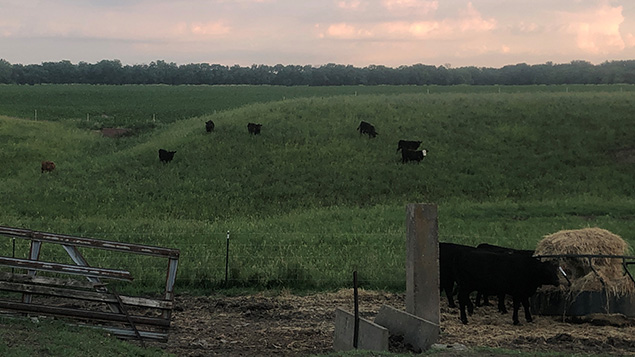Are You Relying on DPAD Passthrough?

We wind up our fall tour of cooperative board meetings in Illinois, Iowa and Missouri this week. It has been an interesting year. High agronomy margins have pushed many cooperatives into income positions previously unseen. Incomes have created more opportunities to distribute more patronage to members. However because of the high levels of income, the Section 199A(g)/DPAD deduction is more likely to be used by the cooperative that generated it instead of being passed through to producers.
Let’s start with a quick, high-level review of DPAD at the cooperative level. The cooperative’s qualified income (that generated in ag production activities) is multiplied by 9% to create the cooperative’s DPAD deduction. Keep in mind that in the case of a cooperative (and only cooperatives), qualified income includes the addback of the cost of farm products purchased from members (PURPIMS). Since this can produce a very large number, the IRS limits DPAD at the cooperative level to the lesser of 9% of qualified income or 50% of qualified wages. In most situations where a cooperative has both marketing and supply divisions, 50% of qualified wages is the maximum amount of DPAD generated. If the cooperative does not have enough taxable income to use the DPAD generated, the excess can be passed-through to the membership. If not passed through, it is lost permanently. The tax benefit for the use of DPAD at the cooperative level is a known 21% federal rate plus state rate, where applicable. When passed through the farmer in a year when the cooperative can use the full amount, the value of the cumulative benefit may be less depending on into what tax bracket each individual farmer falls.
In prior years, cooperatives tended to have “extra” DPAD that they could not use and passed that excess through to the farmer for deduction on the farmer’s individual returns. This year is different and cooperatives are more likely to use the DPAD on their own, leaving less DPAD to pass through to the membership. Many farmers have come to appreciate DPAD passthrough, if not rely on it a bit. As we enter the heart of tax planning season, make sure that you aren’t surprised by changes in your local cooperative’s passthrough. There are lots of other tactics to use to reduce taxes…just make sure to get ahead of game now.
Kelly Jackson Hardy is a certified public accountant and business advisor specializing in income taxation, accounting services, and succession planning for farmers, privately-held elevators and supply dealers, and cooperatives. Kelly is a principal with CliftonLarsonAllen in Princeton, Illinois, as well as a regular speaker at tax and estate planning seminars. Kelly was raised on a hog, row crop and cattle farm in central Illinois and has been involved in the ag industry her entire life. Kelly, her husband, and two sons are active in 4-H and operate a small feeder calf operation and pumpkin business.

How do I find and subscribe to Paul Niefers podcast?